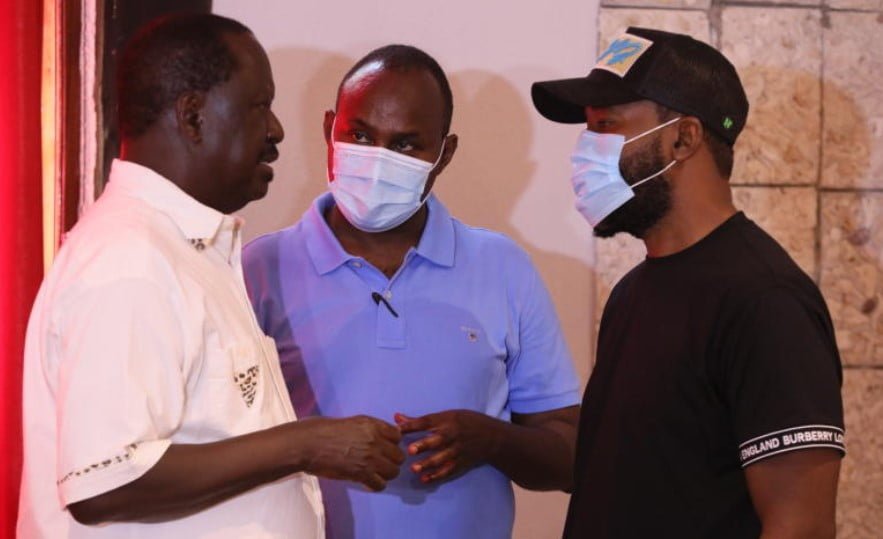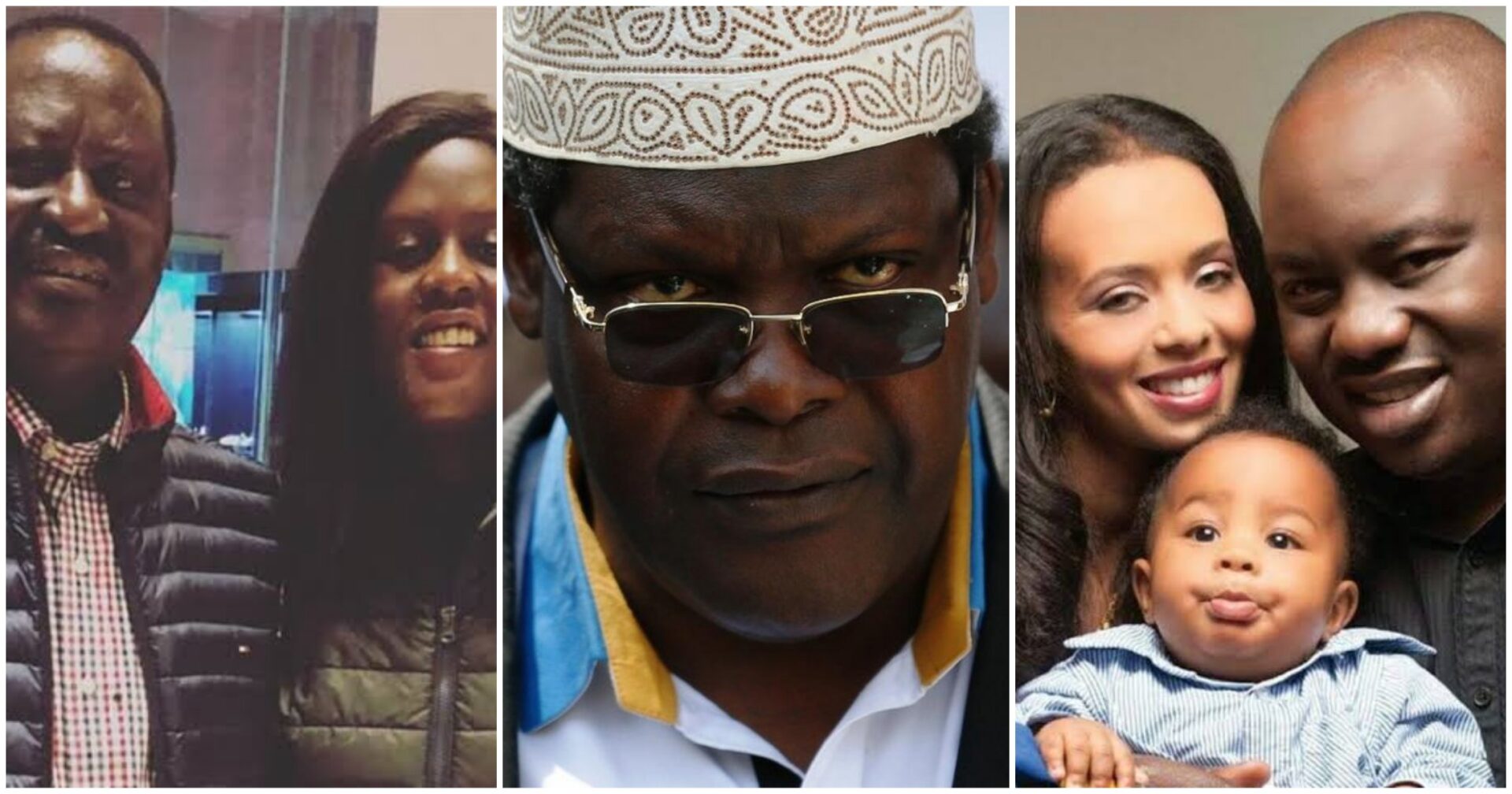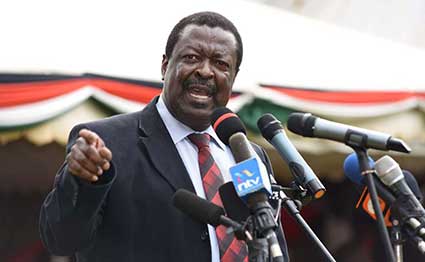Cracks are widening within the United Opposition, threatening to derail its dream of unseating President William Ruto in 2027. At the heart of the storm are two political heavyweights—former Deputy President Rigathi Gachagua and former Interior Cabinet Secretary Fred Matiang’i—whose renewed feud is reopening old wounds from the Uhuru Kenyatta era.
Their attempts to coexist under one umbrella have collapsed into mistrust and rivalry. Gachagua views himself as the undisputed kingpin of Central Kenya, while Matiang’i, backed by Uhuru, is quietly positioning himself as the opposition’s reformist choice.
The question now is whether the two can share a stage—or destroy the movement altogether.
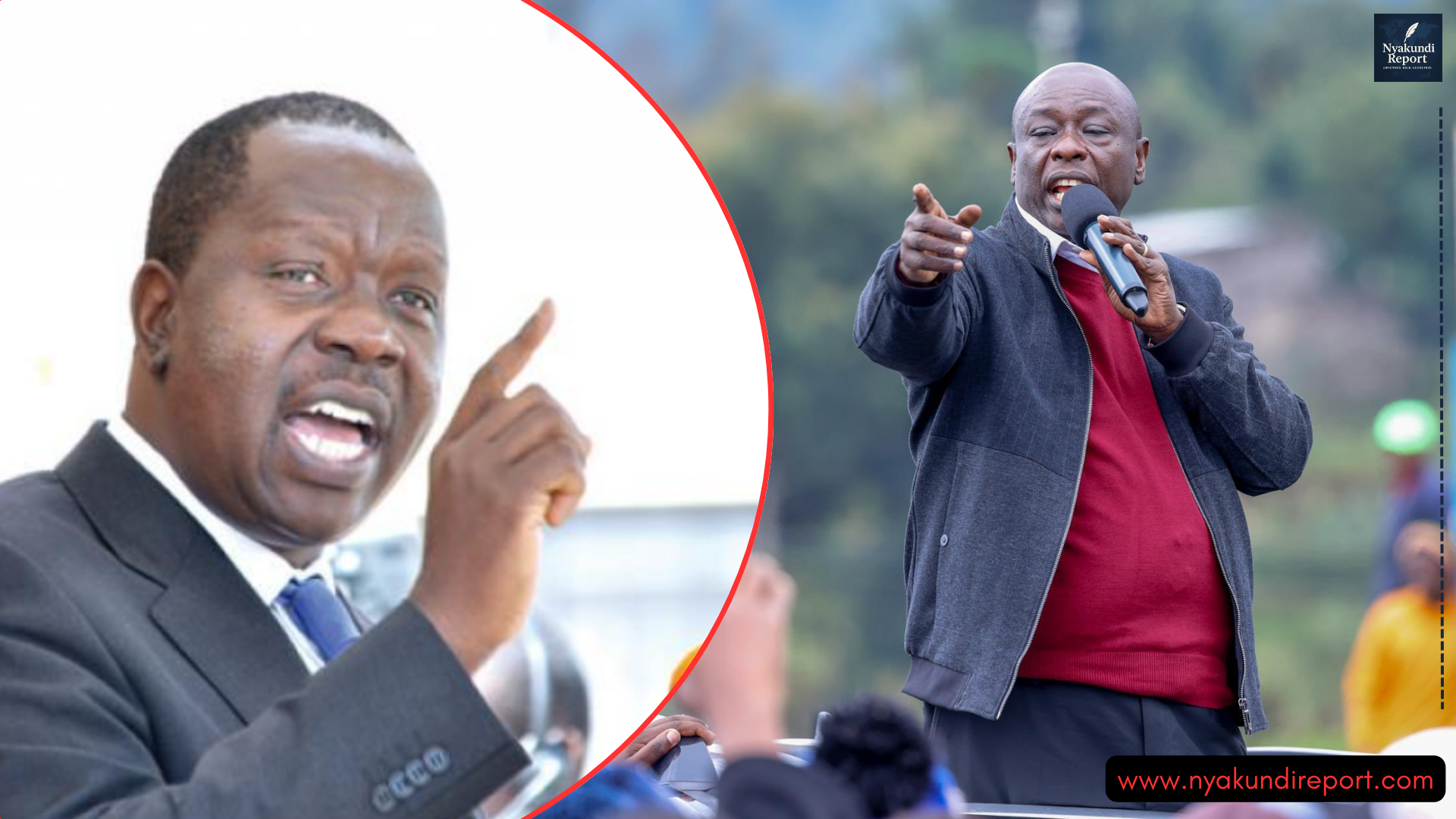
Rigathi and Matiang’i Power Struggle Threatens United Opposition
The uneasy alliance that once brought together former rivals to challenge President Ruto is now hanging by a thread. Rigathi Gachagua and Fred Matiang’i have revived a bitter feud that dates back to the tense days of the Jubilee government. Their public exchanges have turned what was once billed as a united front into a house divided.
Gachagua, speaking in Nyeri, accused Matiang’i of plotting to secure the coalition’s presidential ticket through secretive meetings instead of building support at the grassroots. He argued that “Presidents are made in the field, not in boardrooms,” a thinly veiled jab at Matiang’i’s behind-the-scenes consultations with opposition leaders and Uhuru Kenyatta’s inner circle.
The tension mirrors their bitter past. During Matiang’i’s tenure as Interior CS, Gachagua—then a close ally of William Ruto—faced midnight raids, asset freezes, and arrests on corruption allegations. Many of those operations were reportedly ordered under Matiang’i’s watch, with Gachagua often describing them as politically motivated witch hunts.
Now, the tables have turned. Gachagua is using that history to rally sympathy within Central Kenya, portraying himself as a victim of the same system Matiang’i once defended.
Old Wounds Resurface Between Rigathi and Matiang’i
The political rivalry between the two men runs deeper than current campaign talk. It is a continuation of an old power game that began during Uhuru Kenyatta’s administration. Back then, Matiang’i was seen as Uhuru’s trusted lieutenant—assertive, influential, and unafraid of confrontation.
Gachagua, meanwhile, was part of the pro-Ruto faction, bitterly opposed to Uhuru’s succession plans. Their confrontation escalated during the anti-corruption purge, which saw Gachagua’s home raided and his finances frozen. Matiang’i, the face of state enforcement at the time, became a symbol of state intimidation to Gachagua’s camp.
Today, history is repeating itself under different colors. While both men claim to be working toward uniting opposition forces, mutual resentment has made that mission nearly impossible.
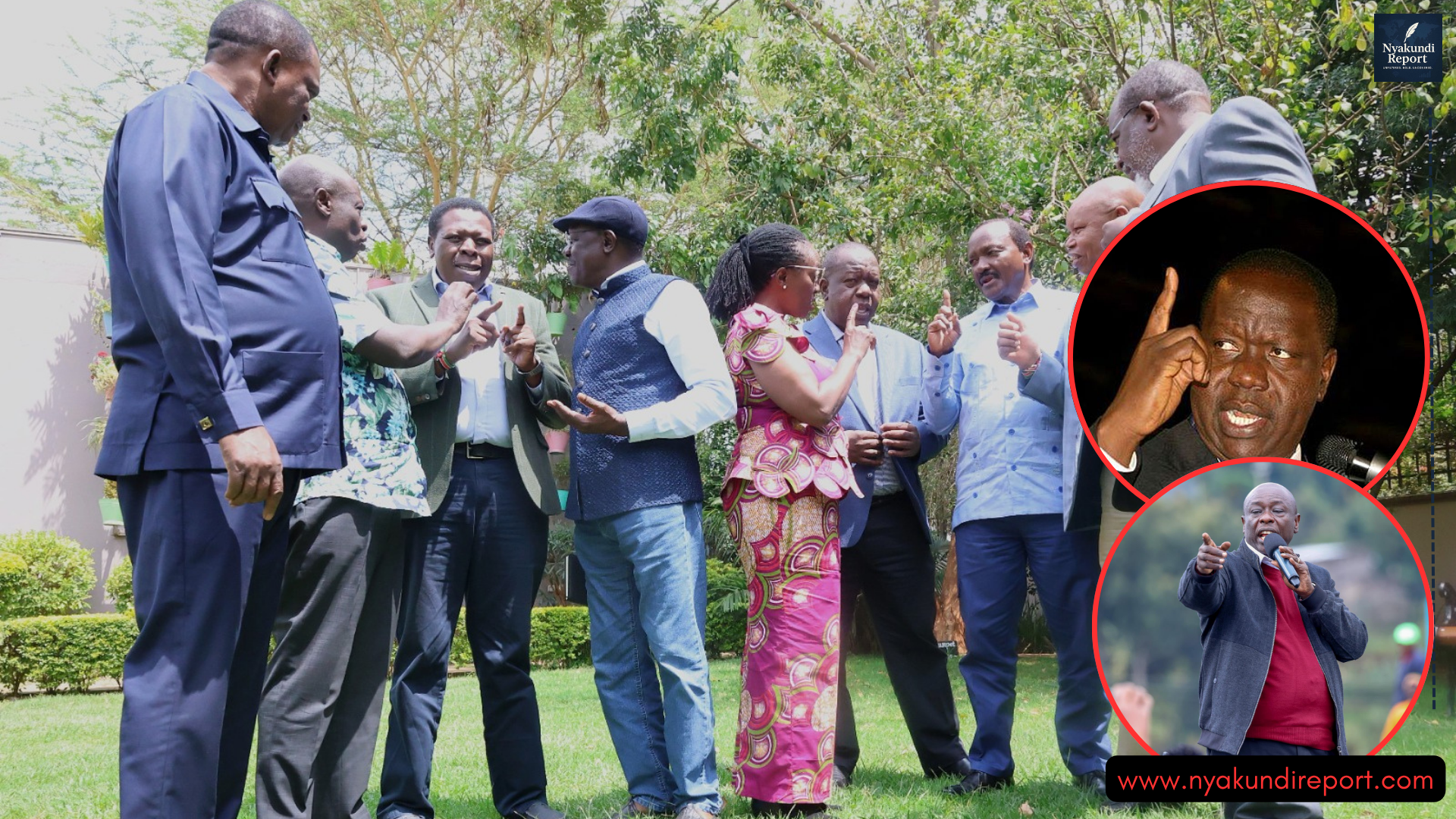
Uhuru Kenyatta’s Shadow Over the Opposition
The influence of former President Uhuru Kenyatta looms large over the United Opposition. Uhuru is reportedly backing Matiang’i as his preferred candidate, viewing him as a disciplined reformer who could bring order to a fragmented opposition.
However, Gachagua considers Uhuru’s re-entry into politics a direct provocation. He accuses the former president of “trying to resurrect a failed dynasty” through Matiang’i. Gachagua believes Central Kenya’s loyalty rests with him—not with Uhuru or his allies.
“Matiang’i cannot lead the mountain,” Gachagua said during a recent rally. “He speaks in hotels while we speak with the people.”
Such remarks have fueled division among coalition members, with factions forming behind each figure. Insiders say the alliance’s council has failed to agree on a framework for choosing a flagbearer, and that Kalonzo Musyoka, Martha Karua, and Hassan Joho are growing increasingly frustrated by the infighting.
The 2027 Dream at Risk
Political observers warn that if the rivalry between Rigathi and Matiang’i continues, it could destroy the coalition before it even fields a candidate. The two men represent rival political philosophies—Gachagua’s populist, people-first approach versus Matiang’i’s technocratic, order-driven style.
Despite his boardroom strategy, Matiang’i insists he will soon hit the ground running. Speaking in Nakuru during a youth engagement, he said: “For those who think I am not ready for the campaign, wait and see. I will visit every village in this country to seek votes.”
But many within the opposition remain skeptical. They believe that unless Gachagua and Matiang’i bury their differences, President Ruto’s re-election will be almost guaranteed.
The coalition’s original goal—to present a united front—now looks increasingly distant. With egos, past grudges, and regional rivalries dominating the agenda, the United Opposition may soon crumble under its own weight.









































